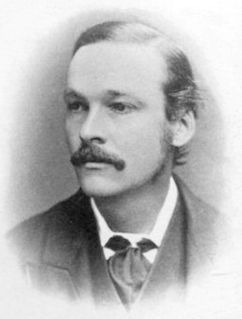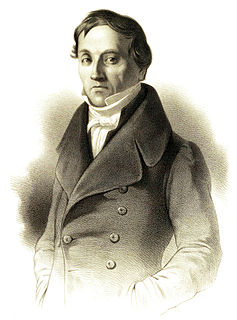A Quote by Francis Maitland Balfour
Why it is that animals, instead of developing in a simple and straightforward way, undergo in the course of their growth a series of complicated changes, during which they often acquire organs which have no function, and which, after remaining visible for a short time, disappear without leaving a trace ... To the Darwinian, the explanation of such facts is obvious. The stage when the tadpole breathes by gills is a repetition of the stage when the ancestors of the frog had not advanced in the scale of development beyond a fish.
Quote Topics
Acquire
Advanced
After
Ancestors
Animals
Beyond
Changes
Complicated
Course
Developing
Development
Disappear
Explanation
Facts
Fish
Frog
Function
Growth
Had
Instead
Leaving
Obvious
Often
Organs
Remaining
Repetition
Scale
Series
Short
Short Time
Simple
Stage
Straightforward
Time
Trace
Undergo
Visible
Way
Which
Why
Without
Related Quotes
All good intellects have repeated, since Bacon's time, that there can be no real knowledge but that which is based on observed facts. This is incontestable, in our present advanced stage; but, if we look back to the primitive stage of human knowledge, we shall see that it must have been otherwise then. If it is true that every theory must be based upon observed facts; it is equally true that facts can not be observed without the guidance of some theory. Without such guidance, our facts would be desultory and fruitless; we could not retain them: for the most part we could not even perceive them.
It doesn't seem to me that this fantastically marvelous universe, this tremendous range of time and space and different kinds of animals, and all the different planets, and all these atoms with all their motions, and so on, all this complicated thing can merely be a stage so that God can watch human beings struggle for good and evil - which is the view that religion has. The stage is too big for the drama.
After having produced aquatic animals of all ranks and having caused extensive variations in them by the different environments provided by the waters, nature led them little by little to the habit of living in the air, first by the water's edge and afterwards on all the dry parts of the globe. These animals have in course of time been profoundly altered by such novel conditions; which so greatly influenced their habits and organs that the regular gradation which they should have exhibited in complexity of organisation is often scarcely recognisable.
It is not the organs-that is, the character and form of the animal's bodily parts-that have given rise to its habits and particular structures. It is the habits and manner of life and the conditions in which its ancestors lived that have in the course of time fashioned its bodily form, its organs and qualities.
The positive evidence for Darwinism is confined to small-scale evolutionary changes like insects developing insecticide resistance....Evidence like that for insecticide resistance confirms the Darwinian selection mechanism for small-scale changes, but hardly warrants the grand extrapolation that Darwinists want. It is a huge leap going from insects developing insecticide resistance via the Darwinian mechanism of natural selection and random variation to the very emergence of insects in the first place by that same mechanism.
The development of the Vertebrate proceeds from an axis upward, in two layers, which coalesce at the edges, and also downward, in two layers, which likewise coalesce at the edges. Thus two main tubes are formed, one above the other. During the formation of these, the embryo separates into strata, so that the two main tubes are composed of subordinate tubes which enclose each other as fundamental organs, and are capable of developing into all the organs.
































